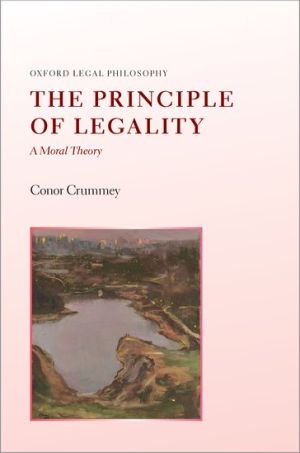
It is a well-known tenet of public law that judges must interpret a statute consistently with common law rights and principles, unless that statute uses 'clear and express' language to license their violation of such rights and principles. This is the 'principle of legality'. But what rights and principles activate this rule of statutory construction? How explicit must statutory language be to permit the violation of common law rights? Is there a point at which a potential interference with common law principles is so egregious that even a clearly-worded statute cannot license it?
The Principle of Legality: A Moral Theory develops a theory to help us engage with and answer these questions. Professor Conor Crummey challenges prevailing accounts of the principle of legality as a presumption about the intentions of the legislature. By engaging with debates in the philosophy of language and general jurisprudence, the book reveals the shortcomings of these existing theories.
Through the lens of a non-positivist theory of general jurisprudence, The Principle of Legality demonstrates that judges, when invoking the principle of legality, are engaging in a complex process of moral reasoning. This innovative approach provides clear, satisfying answers to some of the most pressing and controversial questions in contemporary public law scholarship.